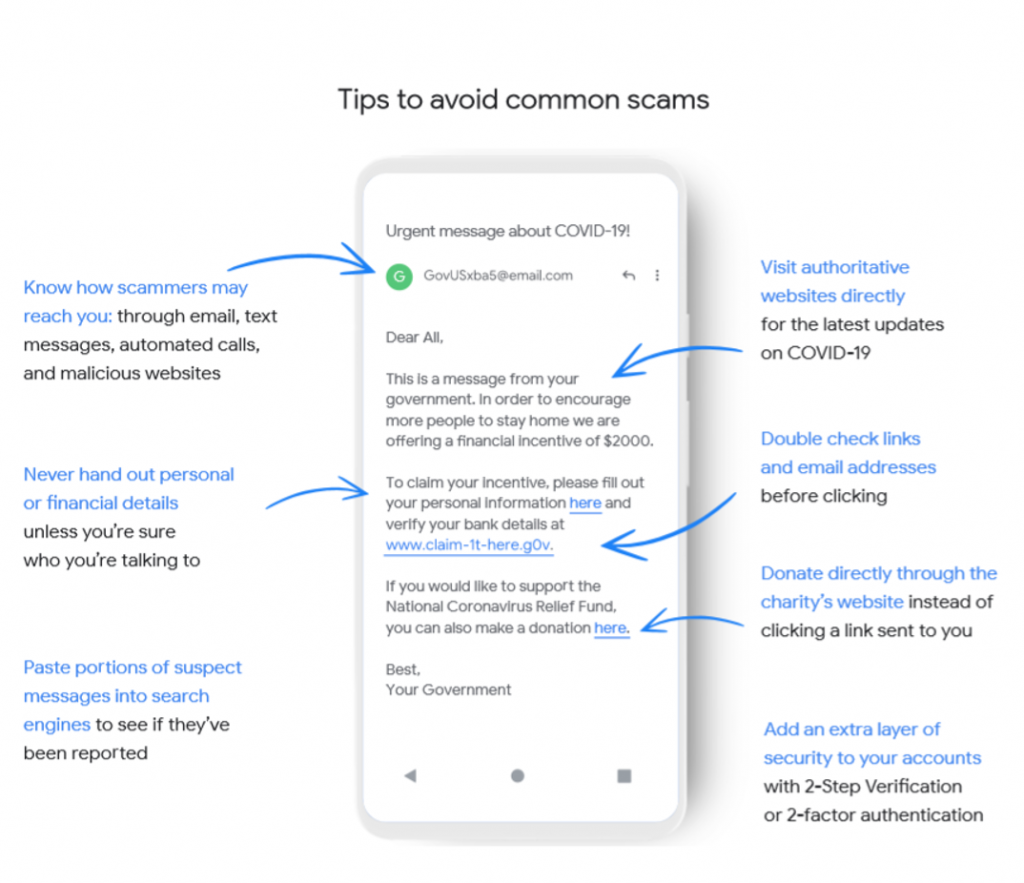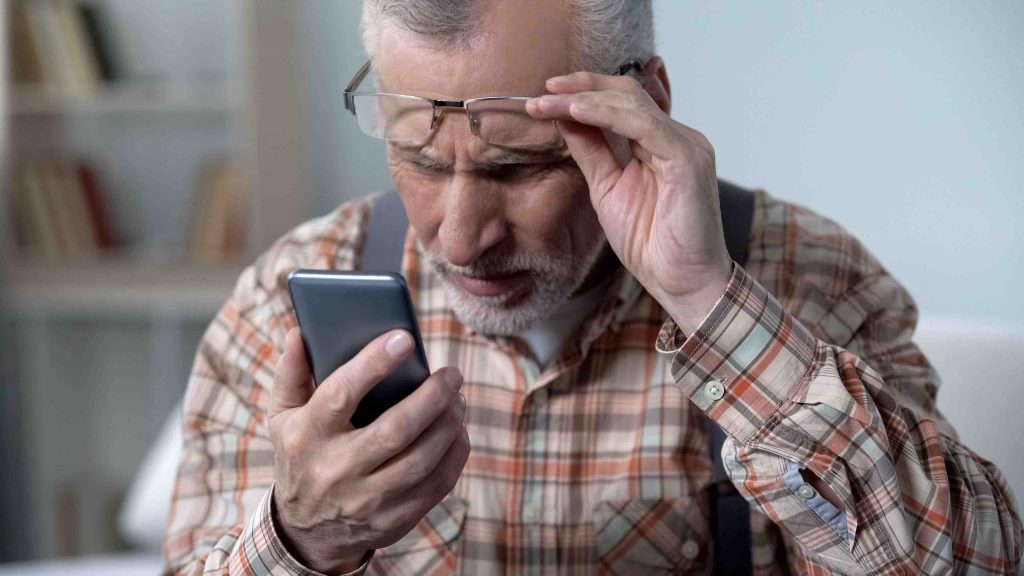In the digital world of the Internet, telephones, text and more the advent of the Coronavirus (COVID-19) pandemic has given rise to many new scams. Many of the scam artists will pose as well-known and trusted sources of authority using malicious links that may look or sound like they are official. To be clear, the World Health Organization’s uniform resource locater (URL) is WHO.int, and the United States Centers for Disease Control and Prevention URL is CDC.gov. When looking for local information, be sure to search online for official government offices and websites to ensure you are getting valid data. No government agency is going to phone or text your number to ask for bank account information, nor will they come to your door, ostensibly providing testing kits and cures for a fee. If you feel you have been a victim or nearly a victim of fraud, contact the US Department of Justice web page or the US Department of Justice’s National Center for Fraud Hotline at 866-720-5721 to relate your experience.
The Increase of COVID-19 Related Scams
The Justice Department is reporting that scams exploiting the COVID-19 pandemic are as global a problem as the virus itself. They recommend being cautious regarding unsolicited, fraudulent healthcare schemes, including testing and treatments. Also, be wary of unwanted phone calls and emails from anyone claiming to be a Treasury or and IRS employee. Remember that the IRS’s first form of communication is via postal mail and not the phone. Finally, the Justice Department cautions about the increase in cryptocurrency fraud schemes that can include incidents of attempted blackmail, work from home scams, and paying for treatments or equipment that does not exist, or investment scams. The US Department of Justice recommends visiting: coronavirus.gov, cdc.gov/coronavirus, usa.gov/coronavirus, fbi.gov/coronavirus, and justice.gov/coronavirus for accurate and up to date information about the coronavirus.
Red Flags of a COVID-19 Scam
If you do receive unsolicited requests about your personal or financial information, spend extra time evaluating the message contents even if it appears to be legitimate at first glance. Do not respond to these requests as you can always contact your bank or whatever entity is soliciting your information directly. Often a scammer will ask you to input your login username and password, share bank details like routing numbers for bank transfers or virtual currency; even your home address provides scammers with needed data. If you do not know the person, or cannot verify the business, or institution contacting you, do not respond. Instead, report it to the Justice Department’s Fraud Hotline listed above.
Understanding COVID-19 Donation Scams
Any charitable donations you make during this pandemic should be made so directly at the charity website. Scam artists want to take advantage of your goodwill and will request donations for COVID-19 relief efforts through a bogus charity. Do some research ensuring that any contribution you make is to a legitimate non-profit organization. If you do not want to do the research yourself, you can rely on a digital search through an organization like Charity Navigator. Type in the charity’s name and the website performs a metasearch that can validate the charity and provide star ratings and other information. Though the site offers an easy donation button, it is advisable to go directly to the charitable website to make your pledge.
If you have questions or would like to discuss planning opportunities for you or a loved one, please don’t hesitate to reach out.

If you plan on responding to an unknown email, look closely at its address or website links before responding. Many scammers add an extra word or letter or exchange a letter o with the number 0. Do not click on anything that says “click here” before examining the URL for validity. Misspelled words or random numbers or letters in the web address generally indicate a scam.
If you want to do a quick and simple check for fraud, you can copy and paste the email address, phone number, or even the portion of the message that is most suspicious and paste the data into a search engine. If the scam has been sent to other people as well, there is a good chance others have already reported it.
If you live at home, especially alone, and are not expecting a visitor, do not open your door to unknown doorbell ringers. You do not have to, and it can have disastrous consequences. Scam artists that are bold enough to attempt ripping you off in person will exert pressure on you, and it is easy to fall prey to their verbal trickery. There is no coronavirus “cure” or “therapy” you need to consider, outside of what your medical doctor prescribes or recommends for you.
As if the COVID-19 pandemic were not enough to contend with, related scams are becoming increasingly common, and many people are more susceptible than ever before, fatigued with the uncertainties that have befallen us. Everyone should take heed to the potential for scams, but those who have elderly parents or loved ones need to let them know over the phone or video chat what to look for and how to respond if they feel they are being targeted. With the knowledge about coronavirus scams and an abundance of caution, money, as well as dignity, can be preserved. Please contact our Albuquerque office at (505) 830-0202 so we can discuss how best to help you.

